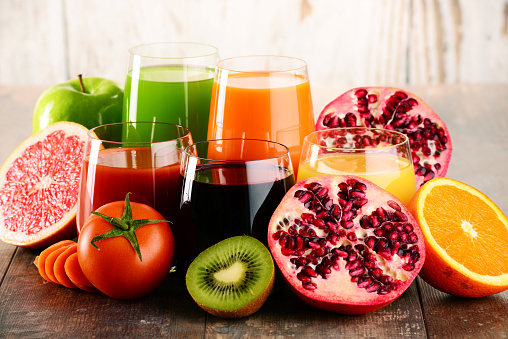
What are antioxidants and their health benefits
Discover what they are useful for and which foods contain them
Antioxidants are a group of phytochemicals which are found naturally in some foods in the form of vitamins, minerals and pigments that act against free radicals, preventing premature ageing of the cells.
Free radicals have molecules that contain an unpaired electron, which means that they are very unstable. Antioxidants release electrons in the blood which are captured by free radicals so that they are no longer unstable or reactive and they stop damaging the cells around them.
What kind of damage do antioxidants cause?
- Premature cell ageing and a higher likelihood of neoplasms.
- Problems with the nervous system and neuronal collections, which may affect learning and memory.
- Cardiovascular problems because they affect blood flow.
- They weaken the immune system.
This means that an adequate intake of antioxidants may reduce the risk of suffering conditions such as high blood pressure, degenerative diseases such as Alzheimer cardiovascular disease, infectious diseases, diabetes, skin conditions (as well as premature age spots and wrinkles) and some types of cancer.
Which are the best antioxidants and where are they found?
- Vitamin C: This is important for the skin, mucous membranes and muscles. It is found in citrus fruits, oranges, mandarin oranges, lemons, kiwis and grapefruit. In other fruits such as mangos, strawberries, papaya, blackcurrants, persimmons, plums and melons and in vegetables such as peppers, cauliflowers, cabbage, tomatoes and spinach…
- Vitamin E: This slows down ageing by stimulating collagen production and prevents the skin from losing elasticity and developing wrinkles. It is found in oils such as soy and olive and in cereals, seeds, nuts and green leafy vegetables.
- Beta-carotene or pro vitamin A: Encourages the circulation by preventing clot formation. You’ll find in it brightly coloured vegetables, red or orange, such as tomatoes, peppers, carrots and pumpkins…
- Magnesium: This mineral relaxes the muscles, boosts the nervous system and protects the heart. It is found in nuts such as hazelnuts and peanuts, in pumpkin, sunflower and sesame seeds, cereals like oats and bran, in dry herbs and cocoa.
- Selenium: Protects from cell destruction and boosts vitamin E efficiency. It is found in eggs, mushrooms, cereals like rice, sunflower seeds, shellfish, parsley, radishes and garlic.
- Zinc: This mineral regulates insulin production, is good for the nails and hair and reduces acne. It is found in red meat, eggs, shellfish, poultry, blue fish, whole cereals, nuts, yeast and soy lecithin.
- Polyphenols: These are chemicals that protect cardiovascular health and which occur in pluses, fruits and dark coloured vegetables such as beetroot, aubergines, grapes, pomegranates, cranberries and raspberries, onions, pepper and garlic, whole cereals, chocolate, cocoa, olive oil, green tea and wine.
- Pigments: Some plant pigments such as lycopene, lutein, terpenes, isoflavones, anthocyanins or carotenoids give colour to many fruits and vegetables and prevent oxidation and proliferation of free radicals in tissues. We mention foods such as tomatoes, peppers, blackcurrants, cranberries, lemon, and soy because, as we have already mentioned before, they are also rich in vitamin A, C or E.
Remember that is you eat a balanced, varied diet and include five portions of fruit and vegetables a day, you will sure to get enough antioxidants and protect your cells from premature ageing.
